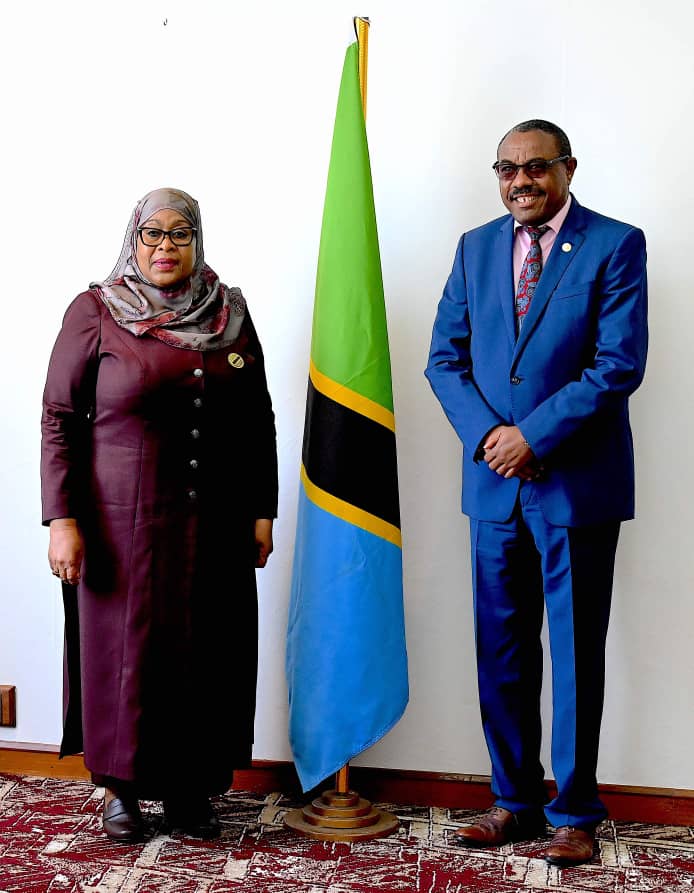In an interview in Dar es Salaam, AGRA Chairman Hailemariam Dessalegn discusses the pivotal role of agriculture in Tanzania’s economy, which contributes 30% to the GDP and supports three-quarters of the national workforce. He elaborates on the Tanzanian government’s dynamic strategies, AGRA’s impactful contributions, and the critical role of both international and local partnerships in propelling sustainable agricultural growth and integrating with global climate initiatives. Dessalegn, a remember of President Samia Suluhu Hassan’s Presidential Food and Agriculture Delivery Council chaired by former Prime Minister Mizengo Pinda, highlights prominent leaders’ concerted efforts to advance Tanzania’s agricultural sector.
Q: Could you delineate the significance of agriculture to Tanzania’s economy and its people?
A: Hailemariam Dessalegn: Agriculture is not merely a sector of our economy; it’s the backbone, accounting for nearly 30 percent of Tanzania’s GDP and employing three-quarters of our workforce. This sector is indispensable, ensuring economic stability and sustaining the livelihoods of millions of Tanzanians. Under President Samia Suluhu Hassan’s leadership, there’s a strong emphasis on enhancing this sector to ensure it continues to be a cornerstone of our economic and social fabric.
Q: What measures has the Tanzanian government taken to foster agricultural growth?
A: Hailemariam Dessalegn: The government has adopted proactive measures to escalate productivity and fortify food security. Agricultural Policy and transformative initiatives such as ASDP II are meticulously crafted to elevate farmers’ socio-economic conditions. These policies and programs are infused with sustainable practices and the latest technological adoptions to modernize agriculture, making it more resilient and productive.
Q: How does AGRA align its strategies to support Tanzania’s agricultural goals?
A: Hailemariam Dessalegn: AGRA’s strategic vision through its 2023-2027 strategy is to bolster the agricultural framework in Tanzania by enhancing input supply, fortifying policy and state capabilities, and improving seed systems. Our targeted efforts aim to impact three million farmers across the nation, focusing on vital crops like maize, sorghum, and sunflower, thus promoting a sustainable transformation across the agricultural landscape.
Q: What role does the Food Systems Partner Dialogue play in Tanzania’s agricultural strategy?
A: Hailemariam Dessalegn: This dialogue serves as a fundamental platform for synchronizing national efforts with global benchmarks in food systems transformation. It’s a confluence where key stakeholders align their strategies with the national goals set by the government of Tanzania, particularly focusing on climate action and sustainable agriculture.
Q: How do you anticipate the outcomes of the Food Systems Partner Dialogue influencing the upcoming Africa Food Systems Forum 2024?
A: Hailemariam Dessalegn: The insights garnered from this dialogue will crucially shape our contributions to the AFSF 2024 in Kigali. It’s a strategic venue to bridge our national priorities with continental and global agendas, ensuring that Tanzania’s innovative approaches and challenges are highlighted, fostering robust collaborations for tangible results.
Q: As Tanzania prepares for significant global platforms like COP 29 and AFSF 2024, what visions do you hold for the country’s agricultural future?
A: Hailemariam Dessalegn: My vision encompasses Tanzania emerging as a frontrunner in demonstrating how agricultural systems can integrate seamlessly with climate action. These international platforms are pivotal for us to exhibit our commitments to sustainable practices that not only preserve our environment but also enhance our economic viability.
Q: How crucial are partnerships in realizing sustainable and inclusive agricultural growth in Tanzania?
A: Hailemariam Dessalegn: Partnerships are the cornerstone of our agricultural strategy. They amalgamate diverse stakeholders, including governments, NGOs, the private sector, and farmers, in a unified effort to exchange knowledge, resources, and technology. Such dynamic collaborations are essential to catalyzing transformative and sustainable growth in Tanzania’s agricultural sector, ensuring that it remains a bulwark for our nation’s economy and a beacon of innovation and sustainability on the global stage.
